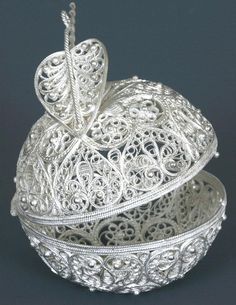"This is what your brother Isra'el says: you know all the troubles we have gone through --
(Num 20:14 CJB)
It is meritorious to persevere in our efforts to help someone, even if they vex us.
In this parasha HaShem punishes Moshe for not 'sanctifying him in front of the children of Israel. There are many versions, interpretations, and understanding as to what he did or did not do, and the most popular is that he got angry. He lost patience; he lost his cool.
Any leader, teacher, chief, overseer may at times experience frustration with the job of leading others. Leadership of any kind is a thankless job where no matter how much one gives, he is always on the losing end of the stick and people resent him. It is often the same with parenting, and it seems that even God has that problem with the people that He created and tries to lead.
I saw a very encouraging article one day:
"After hundreds of years, a model rabbi has been found to suit everyone.
- His drashes last exactly 20 minutes and then sits down.
- He condemns sin, but never hurts anyone's feelings.
- He works from 8 a.m. to 10 p.m. in every type of work from teaching Torah to cleaning the synagogue.
- He gives $60 a week to the synagogue fund.
- He also stands ready to contribute to every mitzvah that comes along.
- He is 26 years old and has been a rabbi for 30 years.
- He is tall and short, thin, heavyset, and handsome.
- He has one brown eye and one blue,
- His hair is parted down the middle,
- The left side is dark and straight, the right brown and wavy.
- He has a burning desire to teach the young generation and spends all his time with older folks.
- He smiles all the time with a straight face because he has a sense of humor that keeps him seriously dedicated to his work.
- He makes 15 calls a day on the members of the synagogue, spends all his time reaching out to outsiders telling them to return to their roots, and of course, he is always available in his office.
The article is of course sarcastic, but these are often the dilemmas that congregation leaders face.
Though he failed in some way in his application of a command, Moshe never failed to be a good shepherd. Right after hearing the divine pronouncement of his sentence, Moshe continued with the job at hand.
Here is an article from the Jewish commentary: Bamidbar Rabbah on the issue.
"It is customary that if someone does business with another person and that person vexes him, he will leave that person and not want to deal with that person again. Moshe however was punished (he would not be allowed to enter Eretz Israel) because of the Israelites (they pressured him for water and as a consequence Moshe erred), but he did not resign as their leader and their benefactor. He continued to do all he could for the people to enable them to enter Eretz Israel."
Here is now an anecdote related by rabbi B's son:
'Rabbi A was once arrested for political reasons. Rabbi B whose views opposed those of Rabbi A on various matters, brought a Torah scroll to the prison so that the imprisoned Rabbi should not miss the public Torah reading. The visiting Rabbi noticed that the cell was very dark and at his request, the warden agreed to move the imprisoned Rabbi to a different cell.
The next day, Rabbi B came again to visit Rabbi A. When Rabbi B came near the cell, Rabbi A covered his eyes with his hands and said loudly, "It is forbidden to look at the face of the wicked!"
The warden was shocked, since Rabbi B was widely known to be a righteous person. "Why do you trouble yourself to visit this man who doesn't seem to have any gratitude for all that you've done for him?" asked the warden.
"Don't you realize his greatness?" replied rabbi B. He is consistent with his views, and he is not influenced by the fact that I have done favors for him."
I think that rabbi B showed an example of HaShem's consistent mercy with us, but also of what our Master Yeshua taught,
... if you are offering your gift at the Temple altar and you remember there that your brother has something against you, leave your gift where it is by the altar, and go, make peace with your brother. Then come back and offer your gift. (Mat 5:23-24 CJB)
(Notice here that it mentions 'if your brother has something agaisnt you' something that often we cannot help, but in HaShem's world, we are still responsible to somehow address it!)
We serve an audience of One, therefore our duty to help others is not dependent on their reaction or gratefulness. If Hashem did so, we would all be in trouble. Our Master and rabbi Yeshua clearly told us of His Father's ways in this matter in the following teaching:
"You have heard that our fathers were told, 'Eye for eye and tooth for tooth.' But I tell you not to stand up against someone who does you wrong. On the contrary, if someone hits you on the right cheek, let him hit you on the left cheek too! If someone wants to sue you for your shirt, let him have your coat as well! And if a soldier forces you to carry his pack for one mile, carry it for two! When someone asks you for something, give it to him; when someone wants to borrow something from you, lend it to him. "You have heard that our fathers were told, 'Love your neighbor -- and hate your enemy.' But I tell you, love your enemies! Pray for those who persecute you! Then you will become children of your Father in heaven. For he makes his sun shine on good and bad people alike, and he sends rain to the righteous and the unrighteous alike. What reward do you get if you love only those who love you? Why, even tax-collectors do that! And if you are friendly only to your friends, are you doing anything out of the ordinary? Even the Goyim do that! Therefore, be perfect, just as your Father in heaven is perfect.(Mat 5:38-48 CJB)
Moshe did not return wrong for wrong, but continued serving Israel. Why? Because he served for an audience of One
On the subject of serving an audience of One, Rav Shaul, Paul, Yeshua's chosen apostle to teach Torah to the world outside of Israel taught,
Slaves, obey your human masters with the same fear, trembling and single-heartedness with which you obey the Messiah. (Eph. 6:5)
And masters, treat your slaves the same way. Don't threaten them. Remember that in heaven both you and they have the same Master, and he has no favorites. Eph. 6:9
Slaves, obey your human masters in everything, not serving only when they are watching you, to win their favor, but single-heartedly, fearing the Lord. Col. 3:22
Masters, treat your slaves justly and fairly. Remember that you too have a Master in heaven.
Col. 4:1
He also told Timothy to:
Tell slaves to submit to their masters in everything, to give satisfaction without talking back or pilfering. On the contrary, they should demonstrate complete faithfulness always, so that in every way they will make the teaching about God our Deliverer more attractive. (Tit 2:9-10 CJB)
NOTE ON THE WORD "SLAVE": These texts about slaves are not to be understood within the context of the slavery that used to exist in America and other countries of Europe. Slaves here refer to live-in workers, indentured workers, or people paying off debts through work. The biblical laws concerning slavery could be equated with what we refer to today as worker's comp and benefitd. A careful study of these laws demonstrate that the slave in Israel was better off with more benefits than the average workers in our modern society.
In other words, it is not our macho "nobody's is going to tell me what to do" attitude that will bring the kingdom of God on earth. In fact, it is the weak who always feel that they have to demonstrate their strength. They do so because they are not confident in themselves. But rather, the Kingdom comes in our strength to humble ourselves before HaShem and before each other, not to yield to the spirits of anger and vengeance.
Paul also said it in the following words: Recompense to no man evil for evil. ...
Rom 12:17
Be not overcome of evil, but overcome evil with good.
Rom 12: 21
"


 RSS Feed
RSS Feed